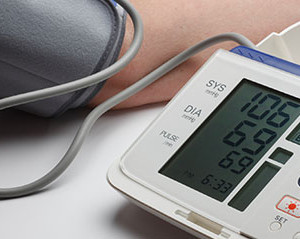- Could Your Grocery Store Meat Be Causing Recurring UTIs?
- Are You Making This Expensive Thermostat Error This Winter?
- Recognizing the Signs of Hypothyroidism
- 10 Strategies to Overcome Insomnia
- Could Artificial Sweeteners Be Aging the Brain Faster?
- Techniques for Soothing Your Nervous System
- Does the Water in Your House Smell Funny? Here’s Why
- Can a Daily Dose of Apple Cider Vinegar Actually Aid Weight Loss?
- 6 Health Beverages That Can Actually Spike Your Blood Sugar
- Treatment Options for Social Anxiety Disorder
At-Home BP Checks

When you’re diagnosed with high blood pressure, the numbers matter. Many patients now use at-home monitors to help keep things in check. but is self-measuring as effective at controlling BP as usual medical care? The answer, according to brand new research, is YES at least in the short-term.A team reviewed 52 studies. comparing usual care versus home monitoring alone and home monitoring with support such as educational materials, pharmacy calls and nurse visits.At the 6-month mark, there was significant evidence that home monitoring alone improves blood pressure control compared to usual care.The results were even stronger when additional support was added BP control was better at both 6 and 12 months. The researchers say these findings are promising, especially given the fact that 1 in 3 Americans now has high blood pressure. They say more study is needed to determine whether self-monitoring provides even longer-term benefits. I’m Dr. Cindy Haines of HealthDay TV your source for ideas to protect your health.










